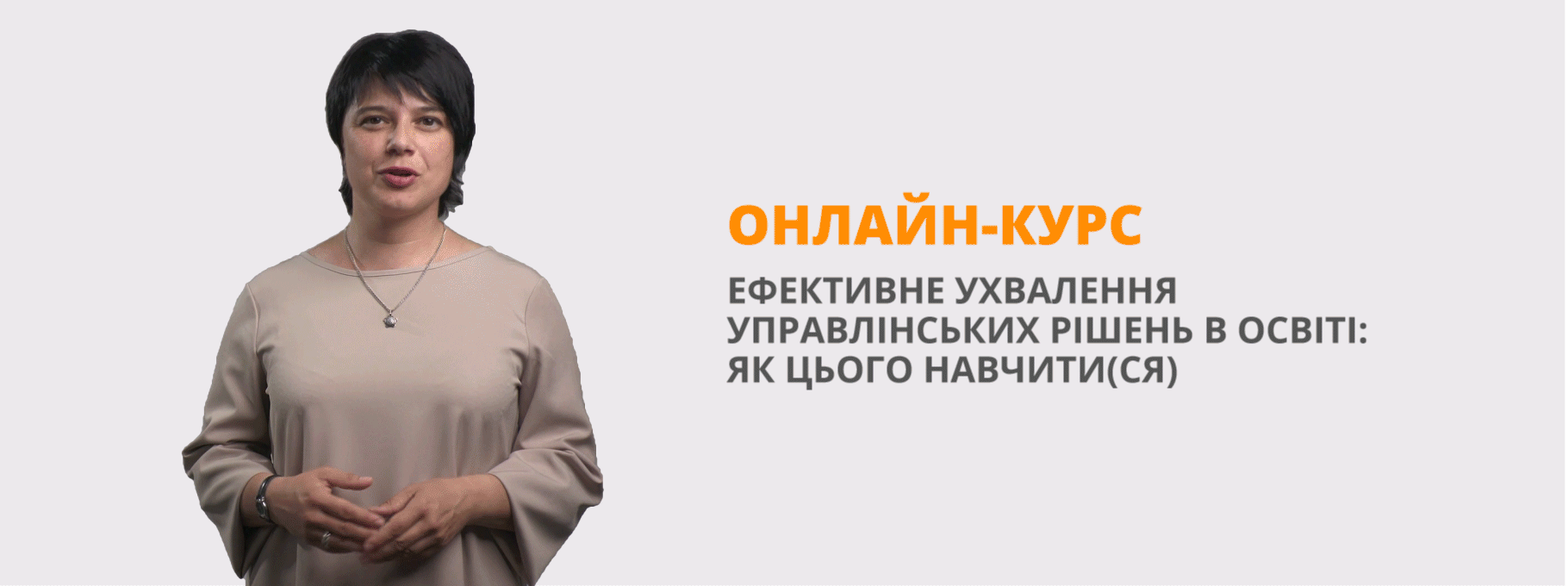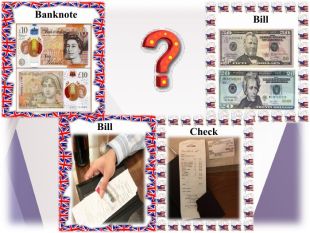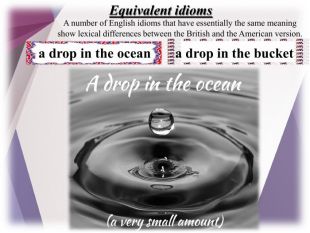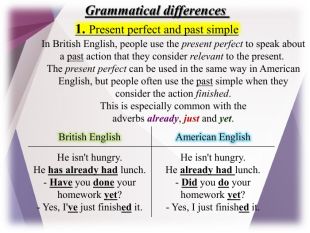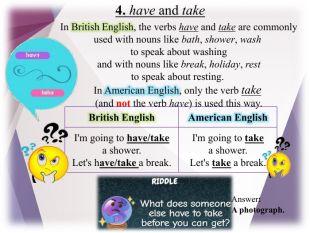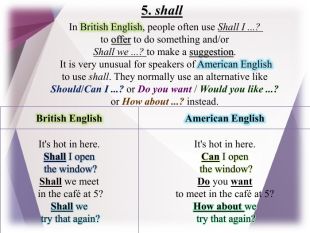Differences Between American English and British English
Про матеріал
Differences Between American English and British English
Differences Between American English and British English
Differences Between American English and British English
Перегляд файлу
Зміст слайдів


Безкоштовний сертифікат
про публікацію авторської розробки
про публікацію авторської розробки
Щоб отримати, додайте розробку
Додати розробку
